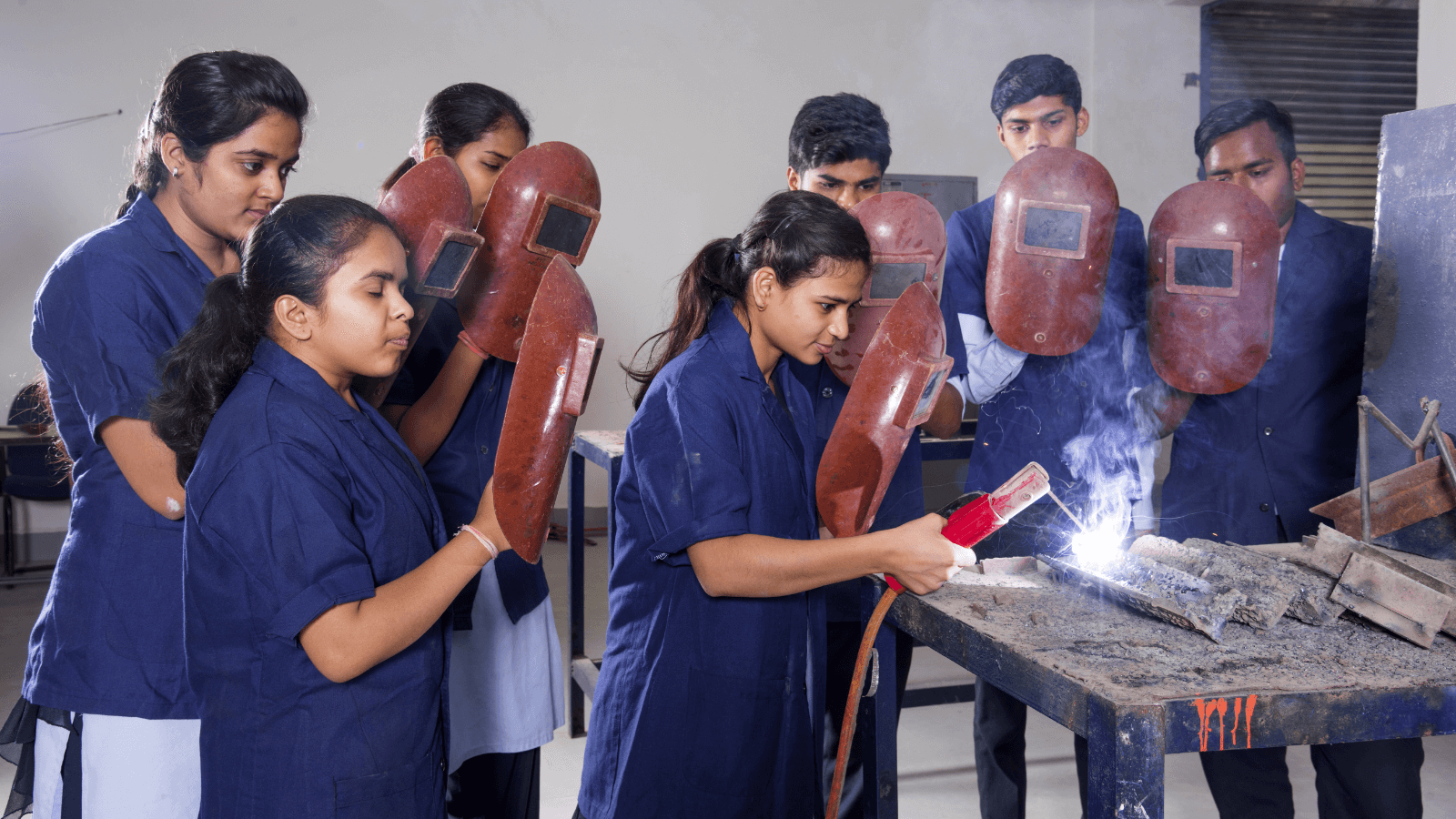Curious case of skilled welder shortage

India is facing a shortage of skilled welders, and it’s hindering the country’s progress towards a more sustainable future. Welding skills are crucial in a range of industries, including construction, manufacturing, and infrastructure development. However, the shortage of skilled welders is making it difficult for India to meet its ambitious sustainable development goals. According to the Indian Institute of Welding (IIW) in 2020, there was a shortfall of 1.2 million welding professionals, which was expected to increase to 1.35 million in the next three years.
There are several reasons behind the shortage of skilled welders in India. One of the main factors is the lack of vocational training programs. Many young people in India are not aware of the potential opportunities and benefits of pursuing careers in welding. The low status of skilled trades is also a contributing factor. Welding is often seen as a dirty and dangerous job, which has discouraged many young people from pursuing it as a career.
To address this shortage, India needs to invest in creating more training programs for aspiring welders. These programs need to be accessible and affordable to ensure that everyone who wants to pursue a career in welding has the opportunity to do so. Additionally, the government and private sector need to work together to promote the benefits of welding as a career, such as the potential for job security, high earning potential, and opportunities for career advancement.
Another potential solution is to incentivize young people to pursue careers in welding. This could involve offering scholarships, apprenticeships, or other forms of financial support to students who are interested in welding. By providing financial incentives, India can encourage more young people to pursue welding as a career, which can help to address the shortage of skilled welders.
Promoting the benefits of sustainable welding practices is also important. Sustainable welding practices can help to reduce waste, improve energy efficiency, and contribute to a more sustainable future. By promoting sustainable welding practices, India can create more interest in welding as a career, and attract more young people to the industry.
There are several successful initiatives that have been implemented in other countries to address similar skilled labor shortages. For example, in the United States, the National Center for Welding Education and Training (NCWEAT) has been working to promote welding as a career, and to provide training and education to aspiring welders. NCWEAT offers a range of programs, from short-term training courses to degree programs, to ensure that aspiring welders have access to the training and education they need to succeed in the industry.
In conclusion, India needs to take action to address its shortage of skilled welders. By investing in vocational training programs, promoting the benefits of welding as a career, incentivizing young people to pursue welding, and promoting sustainable welding practices, India can overcome its skilled welder shortage and build a more sustainable future. Welding skills are crucial to the success of a range of industries, and addressing the shortage of skilled welders is essential if India is to meet its ambitious sustainable development goals.
